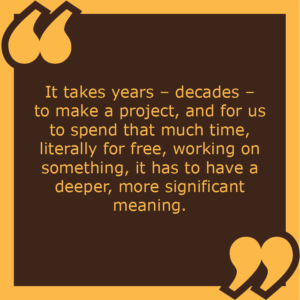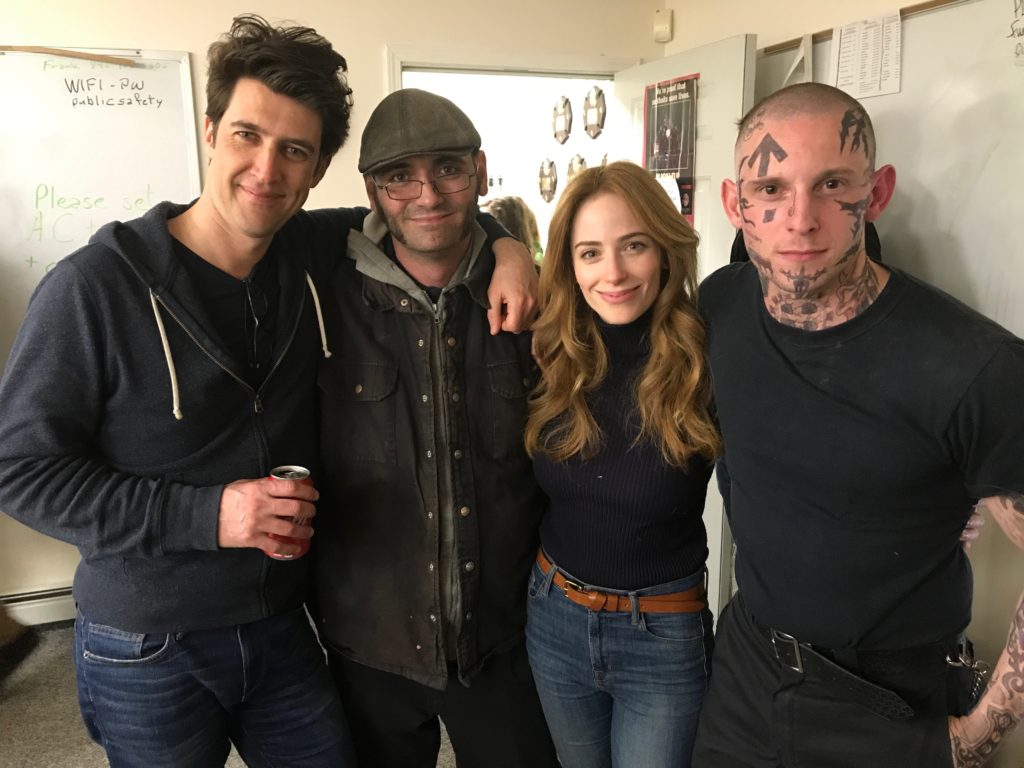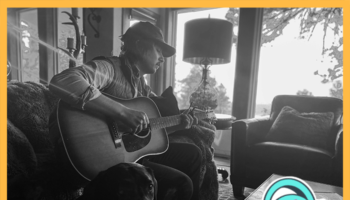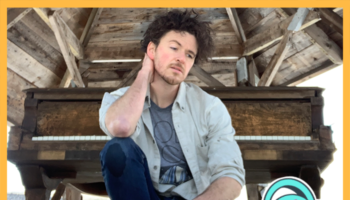
Pop culture junkies will recognize actress Jaime Ray Newman from her incredible catalog of on-screen performances that span both film and television, and while she considers herself an actress first, it is her work as a producer that is enabling her to now control her own creative destiny.
“If you want to be a storyteller, you have to take responsibility to tell stories that you feel passionate about also,” she said in an exclusive interview with TrunkSpace.
After taking home the Oscar for Best Live Action Short Film in 2019 for Skin, she and her producing partner Guy Nattiv, who is also her husband, have a packed slate of projects in development – 14 by the current count. On camera, Newman can be seen in the recently-released Hulu series Little Fires Everywhere opposite Reese Witherspoon and in the film Valley of the Gods, arriving on VOD August 11.
We recently sat down with Newman to discuss chasing down the producing bug, creating in the time of Covid, and why she loves playing baddies.
TrunkSpace: As a producer, you won the Oscar for Best Live Action Short Film alongside of your producing partner and husband Guy Nattiv. Is that where your journey beyond acting began?
Newman: Well, I’m an actress first, but in a way, especially now, I feel like you can’t just do one thing. You just can’t. It’s too competitive. But even beyond that, you have to take some responsibility. If you want to be a storyteller, you have to take responsibility to tell stories that you feel passionate about also.
TrunkSpace: So it helps you control your own creative destiny?
Newman: Of course. As an actor, you are sitting around, you are auditioning 95 percent of the time. You look at these success stories, they’re like one out of a billion. Careers ebb and flow, and if you want to be busy in the artistic process, you have to be creating your own content. I was lucky that I met Guy 10 years ago. I had always wanted to produce – the first thing I produced was when I was in high school. They let me graduate high school a half a year early, a semester early, because I was producing plays. I used my bat mitzvah money. There was a play that I wanted to do called Keely and Du. Every year they would pick a production to produce and they wouldn’t produce the script because it had to do with abortion, and they thought it was too controversial. So I was like, “Okay…” and I literally took this $3,000 from my bat mitzvah account and rented a theater, turned it Equity and hired adult actors in the adult roles. And my dad actually directed it. (Laughter)
TrunkSpace: Wow. What a commitment, especially at that age.
Newman: It was a life changing experience for me. I loved it. So when I came to LA, I got really swept up. I got on a soap opera right away. I started acting pretty consistently straight out of the gate, but I always had the producing bug. I just didn’t know the material. I had trouble finding the material. So when I met Guy, I loved his work in Israel. And before we even fell in love as two humans, we started working on an American-Israeli collaboration together. And it was through that. The project never happened, but we fell in love. I mean, he’s my muse, and I’m his muse. We’re like mutual muses.
TrunkSpace: So in order to stay in the creative process, how important has it been to have these projects to work on during the pandemic? Has it been more apparent this year just how critical it is to control your own artistic destiny?
Newman: Yes. I wake up every morning thanking the stars, Guy, whoever you want to say. When you’re just an actor, you are completely at the mercy of someone else. And I couldn’t bear that. Guy and I are so fucking busy. I mean, I could show you in our office, we have a board with all of our projects. We have 14 projects. We are in development nonstop. We are the busiest we’ve ever been right now. Would I love to be on set, acting? Would I love to be auditioning for things? Yes, but I do feel creatively satisfied because our projects are heavily in development right now.
TrunkSpace: Would those projects not be as far along in development if you did not have this time of extended lockdown to focus on them?
Newman: That’s a great question. There’s two projects, one that came to us through our agents, and one that Guy and I – it’s a true story – that we were actually going to do as our next short. And because of lockdown, a production company said, “Listen, we will give you the development resources to write this. Just forget the short and go straight into the feature. Guy, write the feature.” And that would not have happened. We wouldn’t have had time. It’s an amazing story. And I think that it’s happening – Guy writing it – because of lockdown.

TrunkSpace: In looking at the projects you have in development, many of them are based on real people and real circumstances. For a producer, is there such a thing as a “producer’s voice” like there is for a writer?
Newman: One hundred percent. These are great questions. Hello, Terry Gross. (Laughter)
I think that our slate is pretty eclectic, but every piece of content that we are developing has some sort of social message – social or political. Just entertainment or escapism, I think is very important, it’s just not the stuff that we’re interested in producing. It takes years – decades – to make a project, and for us to spend that much time, literally for free, working on something, it has to have a deeper, more significant meaning.
We have a project about the first stunt woman in Hollywood called A Stunt Woman. It’s about Julie Ann Johnson. It took us almost two years to get her life rights. She wanted nothing to do with Hollywood anymore because she had been blacklisted for outing all of the bad behavior. And the thing that we love about this project is that it’s fun, wild and it’s set in the ’60s, ’70s and ’80s. It’s a period piece, crazy stunt work, all women, bad-ass, like Tarantino-esque, but it has the social underpinnings. The underlying foundation of it is a Norma Rae kind of woman, who couldn’t take it anymore and took the system by storm, and was punished for it, but changed our business forever because of it, for the better.
TrunkSpace: And it’s a story that, in many ways, has kind of been lost to history.
Newman: One hundred percent. She was the first Me Too movement. She was on the cover of TV Guide in 1978, and everyone gave her kudos for two weeks, and then everyone went back to business as usual.
TrunkSpace: One thing that is great about all of the projects that you and Guy are working on, and this includes Skin, is that they feel like the kind of movies we USED to be able to see before everything was a franchise or based on an existing brand. How important are things like VOD and streaming platforms to projects like those that you two have in development?
Newman: I am so grateful for the streamers. I think that independent cinema is going to survive because of the streamers. I really hope that there is still a world for not just Marvel movies in the theaters after we survive this pandemic. There’s an amazing article that our producer wrote – he produced Skin with us, and our next project, Harmonia, is also with him – a guy named Oren Moverman. He just was interviewed by the Hollywood Reporter on the state of independent cinema right now and the streamers. And you should just read it because he’s so intelligent and has such a pulse on what’s happening.
But, Harmonia is our next film. I really want to see it on a big screen. It hasn’t been made yet, but it’s something that I really want to witness on a big screen, just like Roma. We sought out Roma in the theater and went to see it. And I have friends who are like, “I fell asleep watching Roma.” And I’m like, “Did you watch it on your couch at home?”
TrunkSpace: Yeah, that’s true. It’s easy to not be as invested in a film when you are in the comfort of your own home.
Newman: You didn’t have the experience of it. It’s the Ikea theory, that if you build it… if you buy it and put your time and effort into it – tears into it – you’ll appreciate it more. It’s psychological in a way.
But these streamers… I was in Little Fires Everywhere, and it is very cinematic, but at the same time, Hulu paid for a 10-hour movie. No one’s going to go to a movie theater to see a 10-hour movie, but Lynn Shelton was able to make a 10-hour movie. So the streamers are allowing us to do that. Would I love to see A Stunt Woman on a big screen? Yeah, but am I so grateful that we potentially get to make this big, epic saga, but in a televised way, where you have to see it at home? I’ll take that trade off.

TrunkSpace: There are just so many ways for people to find a project today, which of course can be a double-edged sword. Really, all you can do is make the film or project that you want to make and then hope it finds its audience and connects with people.
Newman: That’s it. Because, like I said, you have to do so much work for free, and it takes decades and years, and you dedicate your life to something that you want to go see. And the truth is, the short was only made because we found Byron Widner, who Skin, the feature, is based on, 10 years ago. It was based on a documentary on MSNBC about the tattoo removal process, and it took us years. Guy wrote the script and every producer in town passed on it. We started shopping it in the summer of 2016 and everyone was like, “Hillary Clinton is about to become president. Racism died with Obama. This stuff doesn’t exist anymore.” Guy and I were like, “What are you talking about? We just spent years of research. Of course this shit exists.” And that’s why we made the short as a proof of concept to get the feature made.
TrunkSpace: When you’re acting in a project that you’re also producing, does actress Jaime ever butt heads with producer Jaime in terms of what they both want to achieve?
Newman: I will get back to you in about a year. (Laughter)
With Skin, the short, we paid for it with our retirement funds. I was such a basket case on that set because every one minute of overtime was coming out of our retirement money. I was such a mess on that set for the five-day shoot. There’s no way I could have acted in it. There’s no way. In the feature, there was a moment in time when I was going to play Julie, the female role, but we met Danielle Macdonald on the short and she was so perfect. She was so authentic. She’s so good. Both Guy and I were just like, “This is Julie.” There’s this quality to her that really is the real woman. And I think that it was such a learning experience for me shooting the feature that I’m glad I was just a producer on it.
When I did Little Fires Everywhere, Reese Witherspoon and I spoke mostly about producing, and I watched her juggling – on the phone producing and then she had her quiet space for the work. What I’ve learned is that producing is extremely chaotic. It is just wrangling in the chaos. Acting is very still. It is very focused. Even when you have a chaotic scene… they call it relax-itration, a relaxed concentrated nature, because then creativity can flow. So I have amazing examples of badass producers who’ve done it in the past, and I’ll just figure it out.
TrunkSpace: What is one lesson that you learned in making Skin that you’re going to apply to the next project?
Newman: Don’t invest your own money. (Laughter) I can’t even say that, because we changed our lives. I tell the story all the time. Guy was having so much trouble launching his career in the US. It had been five or six years. He hadn’t made a movie, nothing we were working on was being made, and we went to our financial advisor, sent him the short and we said to him, “We have a short, and we don’t know how to raise money for a short. Do you think that we should put our own money into it?” He was like, “No.” And then we said, “Can you read the script? I know you don’t normally read movie scripts, but it’s 20 pages. Can you read it?” And he called us Monday morning, and he was like, “You have to make this.”
TrunkSpace: You have been in so many great television series over the course of your career. What is one character you wished you had more time to spend with and explore further?
Newman: I played this crazy, werewolf basically, in Grimm. She was like this motorcycle-riding, leather-clad Blutbad. I did a couple episodes of that. I was supposed to do more, but then I think a show that I was on got picked up, and so they had to kill me off. I love playing the bad-asses. I don’t get cast in them that often, but I really like them. Even in Midnight, Texas, I started off as this sort of like Southern genteel, and then you find out that she’s just evil incarnate – this old thousand-year-old she-devil. I like playing the baddies.
Skin, the short, is available now on Amazon Prime Video. Little Fires Everywhere is available on Hulu. Valley of the Gods arrives August 11 on VOD.






